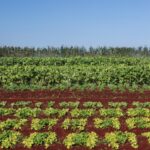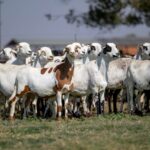Agriculture is an essential part of South Africa’s economy, but new farmers face substantial challenges as they seek to establish sustainable operations. From land acquisition to access to markets, each hurdle can be daunting. Fortunately, various South African institutions, grants, and programs are available to support farmers across these areas. Below is an in-depth look at the common challenges new farmers face and practical solutions to overcome them.
1. Land Access
Challenge: Acquiring land is one of the foremost barriers to entry for new farmers, with the price of agricultural land high and availability often limited. For many, renting land may provide a short-term solution, but it is not always a sustainable option for long-term investment.
Solutions:
• Government Programs: The South African government offers land reform programs, such as the Proactive Land Acquisition Strategy (PLAS), to facilitate land ownership for previously disadvantaged individuals.
• Financial Assistance: Land Bank, a state-owned bank, offers loans tailored to agricultural development. These loans may include options for land acquisition, especially for emerging farmers.
• Partnerships with Established Farmers: New farmers may also partner with established farmers who have unused land and can offer mentorship and resources.
Supporting Institutions:
• Land Bank: Offers agricultural financing solutions that include options for purchasing land.
• Department of Agriculture, Land Reform and Rural Development (DALRRD): Supports land reform and redistribution programs.
• National Empowerment Fund (NEF): Provides financial support for black-owned agricultural businesses.
2. Capital and Funding
Challenge: Starting a farm requires a significant upfront investment in land, infrastructure, seeds, and other resources. Lack of access to capital often prevents new farmers from establishing or expanding their operations.
Solutions:
• Government Grants: The Department of Agriculture offers various grant schemes, such as the Comprehensive Agricultural Support Programme (CASP), to fund the initial stages of farming.
• Microfinance Institutions: Some banks and microfinance institutions, including Standard Bank and Absa, offer microloans specifically designed for agricultural purposes.
• Investor Partnerships: New farmers may attract investors or engage in joint ventures to share the cost of farming expenses.
Supporting Institutions:
• Comprehensive Agricultural Support Programme (CASP): Provides financial assistance for farming infrastructure and equipment.
• AgriBEE Fund: Supports black-owned agricultural enterprises.
• SEFA (Small Enterprise Finance Agency): Offers funding options for small agribusinesses.
3. Equipment and Infrastructure
Challenge: Modern farming often requires specialized machinery, irrigation systems, storage facilities, and processing equipment. Purchasing or even renting such equipment can be prohibitively expensive.
Solutions:
• Agricultural Cooperatives: Many farmers join cooperatives to pool resources and access shared equipment at reduced costs.
• Government Subsidies and Grants: Programs like CASP provide grants for agricultural infrastructure and technology to assist new farmers.
• Hire-to-Buy Programs: Some agricultural machinery companies, such as John Deere, offer hire-to-buy programs that allow farmers to gradually pay off equipment costs.
Supporting Institutions:
• Agricultural Research Council (ARC): Provides resources and support for adopting sustainable farming technologies.
• Provincial Departments of Agriculture: Offer various support schemes, including equipment subsidies and loans for farm infrastructure.
• Agri SA: Works with cooperatives and government agencies to help farmers access resources.
4. Water Access and Management
Challenge: Access to water is essential for farming, particularly in South Africa’s semi-arid regions. Water rights can be complex, and developing irrigation systems is costly.
Solutions:
• Water Rights Management: Farmers should work closely with the Department of Water and Sanitation to secure water rights and ensure compliance with regulations.
• Water-Saving Technologies: Technologies such as drip irrigation and rainwater harvesting systems can maximize water efficiency.
• Subsidies for Irrigation Equipment: Certain provincial programs offer subsidies or grants to support the installation of efficient irrigation systems.
Supporting Institutions:
• Department of Water and Sanitation: Manages water rights and provides information on sustainable water use.
• Water Research Commission (WRC): Supports research into sustainable water management in agriculture.
• GreenCape: Works to promote resource-efficient and low-carbon agricultural practices, including water management solutions.
5. Knowledge and Training
Challenge: Farming requires a specialized skill set, from understanding soil health to managing pests and diseases. New farmers may lack access to formal training or mentorship opportunities.
Solutions:
• Agricultural Training Programs: Programs offered by universities and agricultural colleges provide courses on farming techniques, business skills, and sustainable practices.
• Extension Services: Government extension officers provide on-the-ground support to help farmers apply best practices in crop and livestock management.
• Mentorship Programs: Many farmers benefit from mentorship by joining farming networks where experienced farmers provide guidance.
Supporting Institutions:
• Agricultural Research Council (ARC): Offers training programs and field support on various aspects of farming.
• University of Pretoria – Faculty of Agriculture: Provides agricultural training and research programs.
• South African Agri Academy (SAAA): Provides skills training for new and emerging farmers.
6. Labor
Challenge: Securing and retaining skilled labor is challenging, particularly in rural areas. Labor shortages can impact productivity and increase costs for new farmers.
Solutions:
• Local Training Programs: Training local labor in farming practices can provide a steady supply of skilled workers and strengthen community ties.
• Temporary and Seasonal Labor Programs: Some provincial departments offer programs that assist farmers in hiring seasonal labor for peak times.
• Mechanization: Investing in machinery that reduces the need for manual labor can help mitigate the challenges of labor shortages.
Supporting Institutions:
• Department of Labour: Provides guidelines on labor practices and may offer support for training initiatives.
• National Youth Development Agency (NYDA): Offers youth employment programs, which can provide a source of labor for farms.
• Agricultural Research Council (ARC): Provides advice on mechanization options and solutions for labor management.
7. Market Access
Challenge: Connecting with buyers and establishing reliable market access is a major challenge for new farmers, particularly those who lack established networks.
Solutions:
• Agri-Parks: These government-supported hubs are designed to create market linkages for small farmers and provide access to processing facilities.
• Online Marketplaces: Digital platforms such as HelloChoice and AgriCool help farmers connect with buyers directly.
• Farmer’s Markets and Direct Sales: Selling produce at local markets or through direct sales to consumers can help farmers establish an initial customer base.
Supporting Institutions:
• Agri-Parks: Supported by the Department of Rural Development and Land Reform, they facilitate market access for rural farmers.
• National Agricultural Marketing Council (NAMC): Supports programs that enhance market access for small-scale farmers.
• Agbiz: Connects agribusinesses with market opportunities.
8. Regulatory Compliance
Challenge: Navigating regulatory requirements around land use, labor practices, environmental laws, and organic certification can be challenging for new farmers.
Solutions:
• Agricultural Extension Officers: These officers provide guidance on compliance with agricultural regulations.
• Training Programs on Compliance: Programs offered by institutions like Agri SA and ARC can help farmers stay informed on regulatory requirements.
• AgriBEE Compliance: Understanding and complying with AgriBEE (Broad-Based Black Economic Empowerment) can unlock additional resources and market opportunities.
Supporting Institutions:
• Department of Agriculture, Land Reform and Rural Development (DALRRD): Offers resources and guidance on regulatory requirements.
• Agri SA: Provides information and advocacy on agricultural regulations and compliance.
• National Agricultural Marketing Council (NAMC): Offers guidance on food safety and marketing compliance.
9. Climate and Environmental Challenges
Challenge: Climate change and environmental risks, such as droughts and unpredictable weather patterns, significantly affect agricultural productivity in South Africa.
Solutions:
• Climate-Resilient Crops: Research institutions like ARC are developing drought-resistant crop varieties suitable for South Africa’s climate.
• Climate Insurance: Agricultural insurance programs provide financial protection against climate-related losses.
• Conservation Agriculture: Techniques like minimum tillage, crop rotation, and cover cropping can help reduce vulnerability to climate change.
Supporting Institutions:
• Agricultural Research Council (ARC): Conducts research on climate-resilient crops and sustainable farming methods.
• GreenCape: Works to promote sustainable agricultural practices.
• South African Weather Service (SAWS): Provides weather information that helps farmers plan and mitigate climate risks.
Each of these challenges can be overcome with targeted support, strategic planning, and access to the right resources. As South Africa’s agricultural sector continues to evolve, new farmers equipped with support from both governmental and private institutions can develop sustainable and profitable operations.
Join 'Farmers Mag' WhatsApp Channel
Get the latest Farming news and tips delivered straight to your WhatsApp
CLICK HERE TO JOIN






